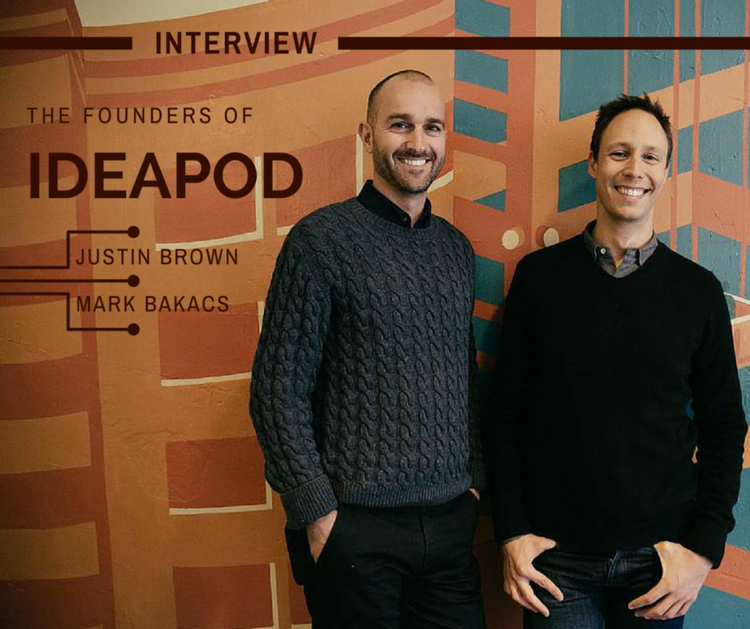It’s Bigger Than an Idea: the Journey of the Founders of Ideapod
The process of leaving the known and stepping into uncertainty is a persistent conversation among founders and also established organizations.
Game-changing ideas and innovations often occur amidst that realm of uncertainty.
Co-founders Justin Brown and Mark Bakacs decided to embark on that journey in September 2012 when they quit their occupations and committed entirely to building Ideapod, a social media platform that connects inspiring people around the world through ideas.
“THINK ABOUT HOW MUCH MORE PRODUCTIVE WE COULD BE AS A SOCIETY IF WE COLLECTED IMPORTANT IDEAS AND HAD THEM AVAILABLE TO THE PUBLIC”
With the belief that ideas have the power to change the world for the better, Ideapod brings together great minds across the world to collaborate and tackle critical global issues.
The platform launched in beta as invite-only in February 2014 with the expectation to become available to the public in 2015, and is currently running an Indiegogo campaign to raise funds for a mobile app.
Once logged in, users create profiles and can post their ideas in 1,000 characters or less, comment on the ideas of others, and create related ideas to build conversation.
A collection of noteworthy thinkers are currently using Ideapod to post about their fascinations, including Jason Silva, host of National Geographic’s TV series Brain Games, whose posts range from topics such as Hacking Your Flow State to The Ecstasy of Art.
Prior to creating Ideapod, Justin was pursuing a double doctorate in International Political Economy and International Policy, and Mark was practicing law.
Both felt frustrated in their previous environments and used to meet regularly at a coffee shop in London’s Borough Market to discuss potential business opportunities. After exploring their two predicaments, the vision of Ideapod was born.
During Justin’s Ph.D. program, great thinkers and ideas inspired him, but he saw a divide in the sharing of information across academia and the general public.
Simultaneously, Mark had begun exploring a concept for a social media platform that was focused specifically on connecting people around important ideas. He explains, “Think about how much more productive we could be as a society if we collected important ideas and had them available to the public.”
“IT WAS A BIG STEP TO LEAVE BEHIND A SALARY AND WAS AS MUCH A LOGISTICAL QUESTION AS AN EMOTIONAL CHALLENGE TO MUSTER UP THE COURAGE TO STEP AWAY FROM THE KNOWN”
Mark describes his transition from practicing law to working full time on Ideapod as a 6-month process that started back in March of 2012 when it became obvious that Ideapod could no longer just be a part time job, “It was a big step to leave behind a salary and was as much a logistical question as an emotional challenge to muster up the courage to step away from the known,” says Mark.
From Justin’s perspective, their full-time leap into Ideapod caused some significant challenges but also created an environment that forced them to be continuously creative along the way.
On a personal viewpoint, both Justin and Mark feel the uncertainty of the last few years has forced them to go through considerable personal growth, building deeper emotional intelligence and a resilience to the countless obstacles of entrepreneurship.
“IDEAPOD IS SO MUCH BIGGER THAN US SO IN ONE-WAY OR ANOTHER, IDEAPOD WILL SURVIVE”
Part of what continuously pushes Ideapod forward is the entire team’s commitment to the vision of Ideapod, and their belief that the platform can potentially allow social movements to develop and gain traction.
“Ideapod is so much bigger than us so in one-way or another, Ideapod will survive”, says Mark. Yes, “ideas are the lifeblood of an entrepreneur”, as a recent article in the Wall Street Journal states, but Ideapod is after more. It is after transforming our world for the better through harnessing the power of ideas and collaboration.
